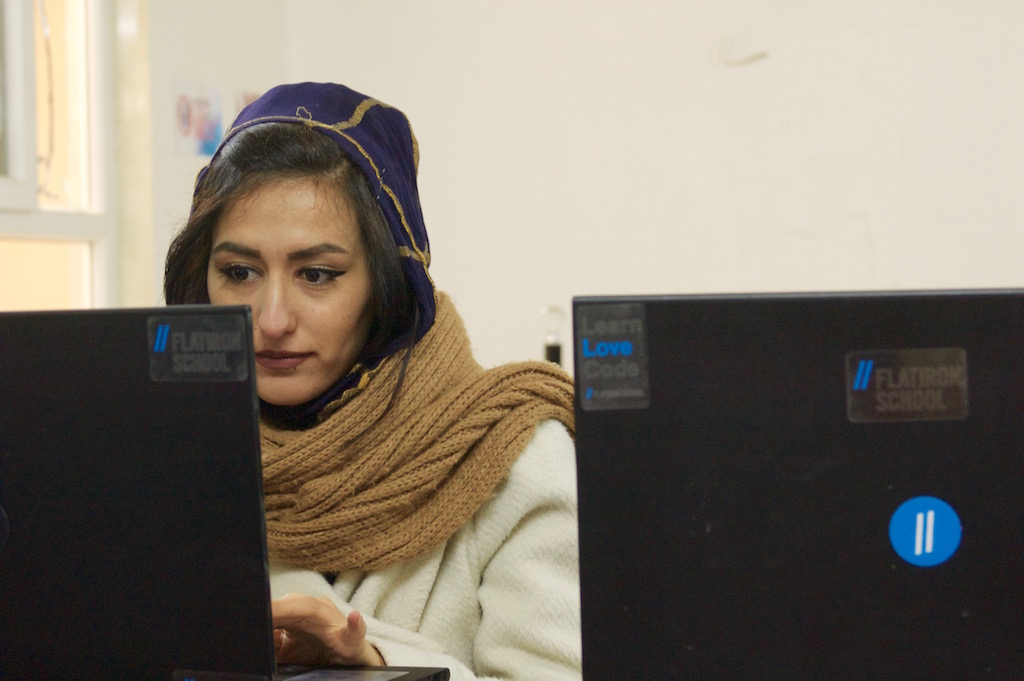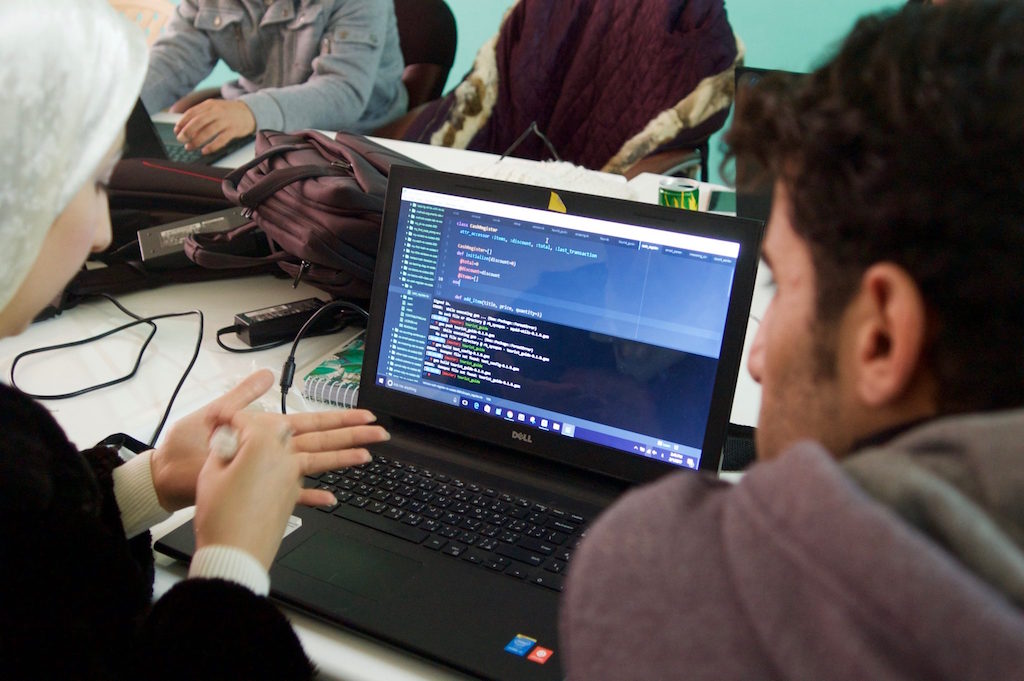When Flatiron School partnered with Re:Coded to teach coding to Syrian refugees, it did more than share its cutting-edge curriculum and technology. It also sent instructor Gabe Jackson to Iraq, where he took charge of a class of displaced students hoping to change their lives by becoming software engineers.
WeWork talked with Jackson—a graduate of Flatiron’s online web developer program and a current member of its engineering team—about what inspired him to travel to the Middle East and what he learned along the way.
First of all, congrats on your own graduation from Flatiron School! How was that experience for you?
Thanks! Finishing the program brought a great sense of accomplishment that lasted about 35 seconds before I jumped back into studying new things.
Did you know right away that you wanted to teach instead of going out for a software engineering role?
I definitely didn’t imagine that I would immediately jump into teaching, but I couldn’t pass this up. When Flatiron’s head of career services Rebekah Rombom told me about Re:Coded, my initial reaction was probably something like, “Hey, I’m not sure you noticed, but the listing says the position is based in Iraq!” But the more I thought about it, the more I viewed it as an incredible opportunity to have a meaningful impact on the students’ lives.
I felt pretty uniquely qualified, too, given that I had just completed the same curriculum the Re:Coded students were working through, I had prior experience tutoring non-native speakers, and a bunch of the students tuned in for one of my “How to Code Music” webinars and were super enthusiastic about it. When I heard that they loved the lecture and were posting their own musical coding creations on the Facebook group wall, I thought, “Welp, guess I’m going to Iraq.”

What was an average day for you with Re:Coded?
This was unequivocally the best job I’ve ever had. My students were smart, vibrant, hilarious, inspiring, determined, kind, resilient, patient, and just generally cool human beings. When I’d be at home, I was never too far from my computer, so that I could field student questions. They all had very different schedules at home, so it was a bit of a challenge. But if a student had to care for their family (sometimes including a large extended family) and couldn’t start studying until midnight, I wanted to be there to answer their questions. It probably wasn’t a viable work-life balance in the long run, but at the time, there was nothing that could make me happier.
How did it feel to share what you learned in such an impactful way—with those who could really benefit from this kind of career?
It’s indescribable. I woke up every day excited to get to class. The livelihood prospects inside of refugee camps fall somewhere on the scale between inadequate and non-existent, and it’s little better for displaced peoples outside of a camp, who must compete for jobs in a local economy that doesn’t often welcome them with open arms. Obviously the optimal situation would be one in which the displacing event could be avoided altogether. A more realistic measure is to equip displaced populations with a portable skill set. The work isn’t tethered to a physical space, such as a factory, office, or farm, and it returns some small measure of control over their own lives to people who sacrifice a ton upon fleeing their homes. Feeling like I have even the smallest hand in that empowerment is beyond gratifying.
Looking back at your experience with Re:Coded, are there any students whose stories touched you that you can share?
I’m incredibly proud of all the Re:Coded fellows, but two stories come to mind right away: Goory and Ali. After graduating from the Re:Coded program, Goory took on two jobs—one as a trainer with Re:Coded, teaching children how to code in one of the largest refugee camps in Iraq, and one as the CTO of a nascent nonprofit in Denmark, working remotely. Today, she continues to help the nonprofit to develop an online platform where beneficiaries can rate the services provided by NGOs and the UN.

Then there’s Ali. After graduating from the Re:Coded program, Ali worked with Re:Coded to develop the framework of a freelancing website targeted at displaced professionals with digital skills—to help even more displaced people change their lives through technology and code. At the same time, he’s currently developing his own business idea through a business incubator in Erbil, Iraq.
What’s the most important thing you learned at Flatiron School that you’re now leveraging in your teaching?
The most important thing I tried to pass on to my students is a confidence in their ability to continue teaching themselves new things after the program ends. I love that software development doesn’t subscribe to notions of mastery or finality. There are always new technologies to learn and new updates to keep abreast of. The upshot is that a voracious appetite for learning is the single best skill a developer can possess.




